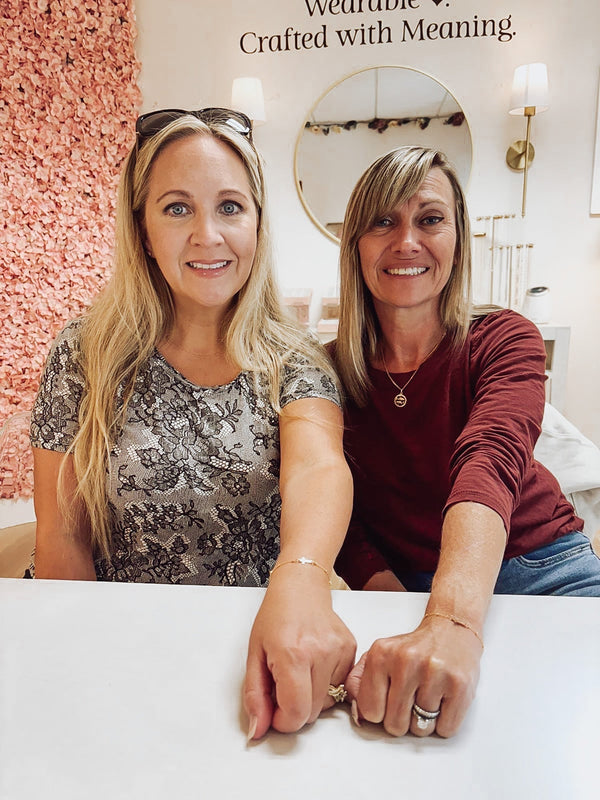Supporting a Loved One with Breast Cancer: 5 Ways to Provide Care and Emotional Support

Breast cancer can have a significant emotional impact on both the person diagnosed and their loved ones. The news of a breast cancer diagnosis can be shocking and devastating, and it is common for loved ones to feel a range of emotions, including fear, sadness, anger, and confusion.
Watching a loved one go through the physical and emotional challenges of breast cancer can be incredibly difficult. It is natural to feel helpless and overwhelmed during this time, but there are ways to support and care for your loved one.
One of the most important things you can do for your loved one is to be there for them, both physically and emotionally. Listen to them, offer words of encouragement and support, and help them with practical tasks such as cooking, cleaning, and transportation. Encourage them to seek support from healthcare professionals, support groups, and other resources that can help them cope with the emotional impact of breast cancer. With the right care and support, your loved one can overcome the challenges of breast cancer and emerge stronger than ever.
Here are some tips on how to support a loved one through breast cancer.
Educate Yourself about Breast Cancer
As a loved one, one of the ways to support someone with breast cancer is to educate yourself about the disease.
Learning about breast cancer can help you understand what your loved one is going through and how you can be supportive. You can start by reading credible sources of information such as books, online resources, and medical journals. You can also attend support groups or talk to healthcare professionals to get a better understanding of the disease.
It is also essential to understand the different stages of breast cancer, types of treatments, and their side effects. This knowledge can help you support your loved one through diagnosis, treatment, and recovery. You can also assist them in making informed decisions about their treatment options.
Be Present and Listen to Their Needs
One of the simplest but most important things you can do to provide support is to be present and listen to their needs.
It's important to recognize that everyone's experience with breast cancer is unique, and what may be helpful for one person may not be for another. This is why it's essential to take the time to actively listen to your loved one and understand their specific needs and concerns. This can involve simply being there to listen when they want to talk, asking them how they're feeling, and being open to hearing about their fears and worries.
Offer Practical Help and Assistance
A breast cancer diagnosis can be a stressful and overwhelming experience for both the patient and their loved ones. As a loved one, one of the best ways to offer support is by providing practical help and assistance during this difficult time.
Practical help can include tasks such as providing transportation to and from medical appointments, preparing meals, helping with household chores, or running errands. These tasks can be a significant burden for someone undergoing treatment for breast cancer, so offering to take on some of these responsibilities can be a huge relief.
It's also important to be flexible and adapt to the changing needs of the patient. Treatment schedules and side effects can be unpredictable, so being available to help at short notice can be invaluable.
Show Empathy and Encouragement
One of the most important things you can do is to show empathy towards them. Try to understand their feelings and emotions and be there to listen when they need to talk. It's important to let them know that you are there for them and that you care about them. Offer a shoulder to cry on, or a listening ear, and be willing to lend a helping hand when needed.
Another way to support a loved one through breast cancer is to encourage them. Encourage them to stay positive and to keep fighting. Remind them that they are strong and capable of overcoming this challenge. Offer words of encouragement and support, and let them know that you believe in them.
Caregiver Self-Care: Taking Care of Yourself While Supporting Your Loved One
Taking care of a loved one is a rewarding but challenging experience, and it can be easy to forget about your own needs in the process. It is important to practice caregiver self-care to ensure that you are taking care of yourself while supporting your loved one. Here are some tips to help you prioritize your own well-being:
Take breaks: It is important to take regular breaks to recharge your batteries. Use this time to do something you enjoy, such as reading a book or going for a walk.
Connect with others: Caregiving can be isolating, so it is important to connect with others. Consider joining a support group or reaching out to friends and family for help.
Practice self-care: Take care of your physical and emotional health by eating a healthy diet, getting enough sleep, and practicing stress-reducing activities, such as yoga or meditation.
Set boundaries: It is important to set boundaries with your loved one to ensure that you are not taking on too much. Know your limits and communicate them to your loved one.
Reflection of Memories Fuck Cancer Necklace
Our necklace can be worn by the patient or their loved ones as a symbol of support. The necklace can serve as a reminder that the patient is not alone in their fight against cancer and is a way to raise awareness about the disease. It can spark conversations about cancer and the impact it has on individuals and their families. This necklace is our show of support for cancer research and advocates for better treatments and care for those affected by the disease.
To us it’s not just a piece of jewelry; it is a symbol of hope, strength, and support for patients and their loved ones. Let us stand strong together and support those affected by cancer.






